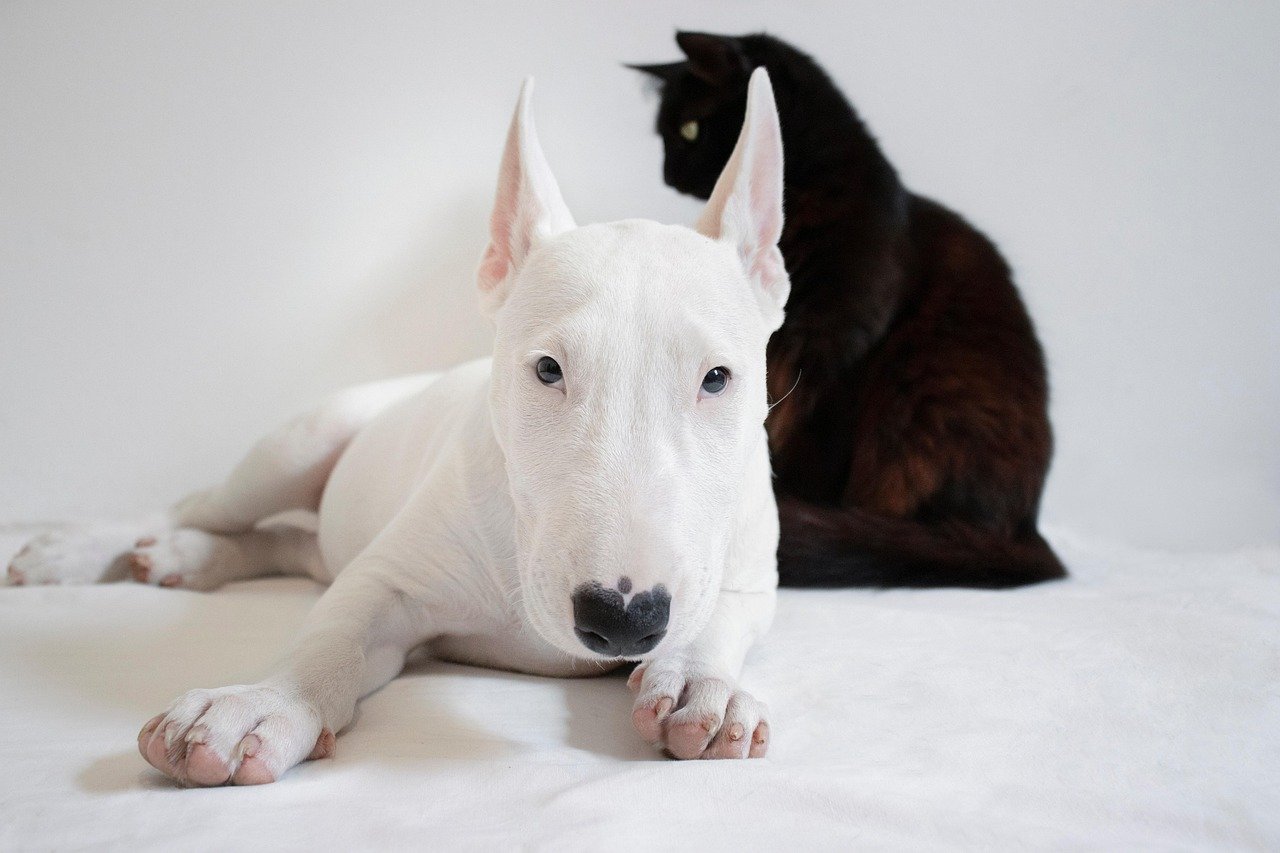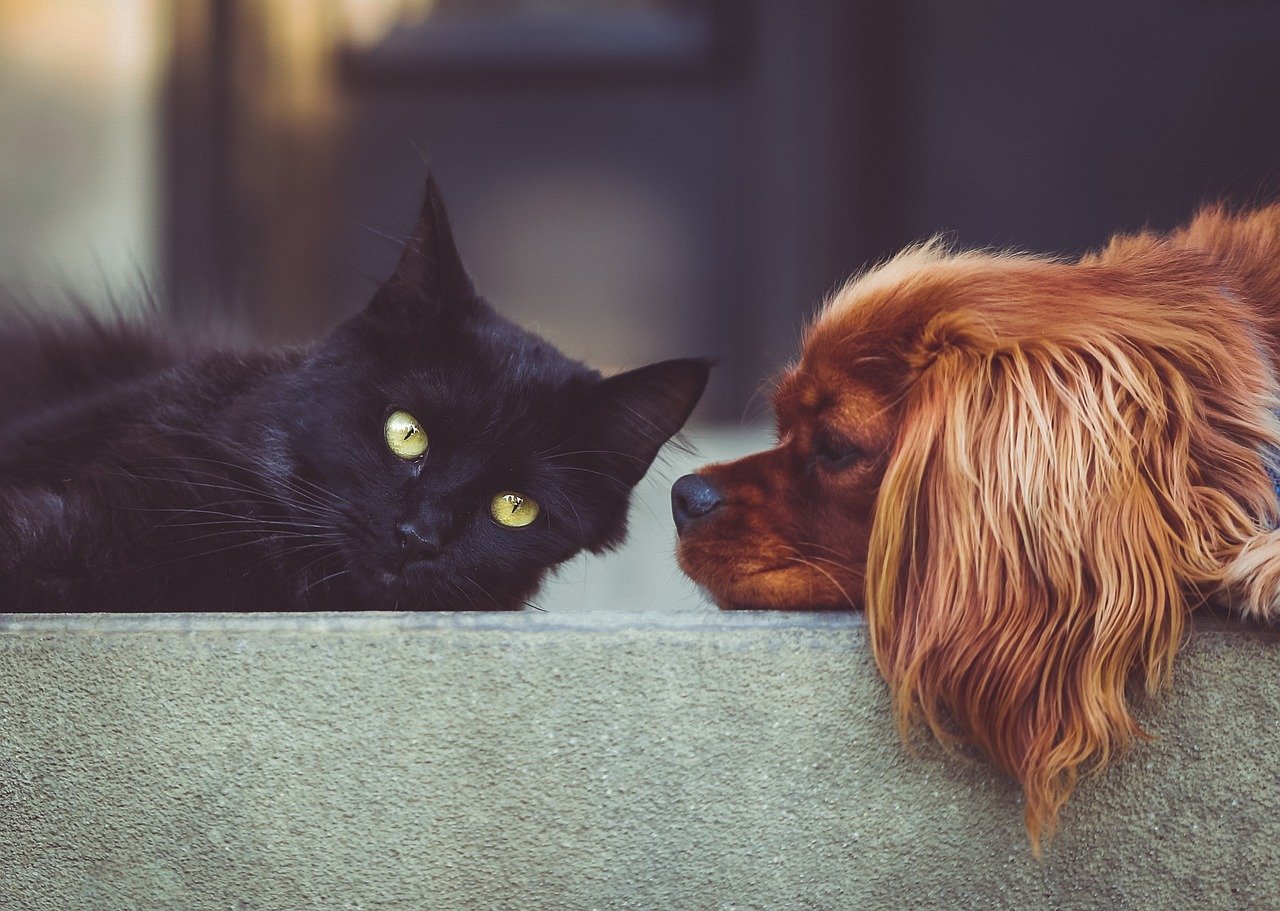Choosing between a dog and a cat isn’t just about preference—it’s about compatibility. Your daily routine, energy level, living space, and even your social habits can all play a big role in determining which pet is the better match. While dogs often thrive with structure and active engagement, cats tend to prefer independence and calm. In this guide, we’ll help you take a closer look at your lifestyle to figure out whether a loyal canine companion or a low-maintenance feline friend is the right fit for your home—and your heart.
Your Daily Routine: Structured or Spontaneous?

When it comes to dogs, structure is everything. Dogs thrive on predictable schedules, needing regular walks, feeding times, and bathroom breaks. If your mornings start with a set alarm and your evenings wind down like clockwork, a dog could fit seamlessly into your world. They rely on you for their every need, from exercise to affection, and they reward you with unwavering loyalty.
In contrast, cats are the masters of flexibility. They don’t mind if your work hours change or if you decide to sleep in on weekends. Cats are content to entertain themselves for hours and will nap the day away while you’re busy. If your lifestyle leans toward unpredictable hours or frequent spur-of-the-moment plans, a cat’s independent nature might be your ideal match. Cats don’t require walks or set playtimes—just a cozy spot and your occasional attention.
Space At Home: Room To Roam Or Cozy Corners?
Dogs, especially larger breeds, need space to stretch their legs. A backyard, nearby park, or open living area is almost a must for active dogs. If you live in a spacious house or have easy access to outdoor areas, a dog will thank you with tail wags and playful energy. Even small dogs benefit from room to play, so consider how much indoor and outdoor space you can provide.
Cats, on the other hand, are experts at turning even the tiniest apartment into their kingdom. They don’t mind small spaces as long as there are places to perch, hide, and explore. A cozy windowsill or a cat tree can keep a feline entertained for hours. If your home is compact or you’re a city dweller with limited outdoor access, a cat will likely feel right at home.
Social Life: The Life Of The Party Or Peaceful Retreat?

If you love hosting gatherings and meeting new people, a friendly dog can be your ultimate icebreaker. Many dogs thrive in social settings, greeting guests with wagging tails and playful antics. They are often the stars of the show, making everyone feel welcome and included. For those who crave a lively, interactive home environment, a dog’s sociable nature is a perfect fit.
But maybe you see your home as a sanctuary, a place to relax and recharge in peace. Cats tend to be more reserved around strangers, preferring familiar faces and quiet surroundings. If you value tranquility and solitude, a cat’s calm presence and gentle companionship can make your house feel like a peaceful retreat. They’ll respect your need for downtime and share in your moments of stillness.
Travel Habits: Globe-Trotter Or Homebody?

Dog owners quickly learn that spontaneous getaways aren’t always possible. Dogs need daily care, attention, and exercise—even when you’re on vacation. Boarding kennels, pet sitters, or dog-friendly trips become part of your travel planning. If you’re frequently on the move, juggling airports and hotels, caring for a dog can be a challenge and might require a strong support network.
Cats, in comparison, are more independent and self-sufficient. They can handle your short absences with ease, provided they have food, water, and a clean litter box. Many cat owners simply arrange for a friend to check in every couple of days. If your heart belongs to travel or your job takes you away often, a cat’s easygoing nature allows you to come and go without worry.
Exercise Needs: Outdoor Adventures Or Indoor Play?
For dog lovers, daily exercise isn’t just a chore—it’s a bonding experience. Whether you’re jogging through the park or hiking up a mountain trail, dogs make every adventure more joyful. They need physical activity to stay healthy and happy. If you’re someone who enjoys being outdoors and values regular movement, a dog will eagerly join you every step of the way.
Cats, however, get their exercise in bursts of playful energy. A few minutes chasing a toy or leaping onto furniture is enough to satisfy their instincts. If you prefer more relaxed, indoor activities, a cat’s playful yet low-maintenance approach to exercise is a great match. You can enjoy playtime together without ever lacing up your sneakers.
Allergies and Sensitivities: Sniffles or Sneezes?
Pet allergies are a real concern for many would-be owners. While both cats and dogs can trigger allergic reactions, cat allergies are generally more common and severe due to a protein found in their saliva and skin. If you or someone in your household is prone to sneezing and itchy eyes, it’s wise to spend time around both animals before making a decision.
Some dog breeds are considered hypoallergenic, shedding less and producing fewer allergens. However, there’s no truly allergy-free pet. Cats also come in breeds that are said to be better for allergy sufferers, like the Sphynx or Russian Blue, but reactions can still vary. Consider your health and comfort before bringing any pet home.
Time Commitment: Constant Companion Or Occasional Check-In?
Owning a dog is a full-time commitment. They crave companionship, attention, and daily interaction. Leaving a dog alone for long periods can lead to anxiety or destructive behavior. If you work from home, have flexible hours, or are rarely away, a dog will keep you company and fill your days with laughter and love.
Cats, on the other hand, are far more self-reliant. They don’t mind spending time alone and are content with a few cuddles and play sessions each day. If your schedule keeps you out of the house for hours at a time, a cat will handle your routine with quiet grace. They’ll be waiting for you, but they won’t hold a grudge if you’re gone.
Training and Patience: Ready For The Challenge?
Dogs are eager learners but require dedicated training, patience, and positive reinforcement. From housebreaking to basic commands, dogs need guidance to become well-mannered companions. Training takes time and consistency, but the rewards are immense—a well-trained dog can be a joy to live with. If you have the patience and energy to teach, a dog will repay you with loyalty and love.
Cats are more independent and less likely to follow commands, but they still benefit from gentle guidance. Litter training is usually straightforward, and most cats naturally avoid unwanted behaviors with the right setup. If you prefer a pet that requires less hands-on training and is happy with simple boundaries, a cat might be the better fit.
Financial Considerations: Budgeting For Your Best Friend
The cost of pet ownership is often underestimated. Dogs can be expensive, needing regular vet visits, grooming, quality food, toys, and sometimes even daycare or walkers. Larger breeds tend to cost more, while smaller dogs may need less food but more frequent grooming. Unexpected medical bills can also add up quickly.
Cats are generally less expensive to care for, requiring fewer supplies and less frequent grooming. Their food costs are lower, and they’re less likely to need professional care while you’re away. However, vet bills and emergency care can still be significant. Make sure you’re financially ready for any pet you choose.
Emotional Support: What Kind Of Comfort Do You Crave?
Dogs are renowned for their emotional intelligence. They sense your moods, offering comfort with a nuzzle or a wagging tail when you need it most. For those who crave deep, expressive bonds and a companion who’s always eager to please, dogs deliver affection in abundance. They’re always excited to greet you, making even the loneliest days feel full.
Cats offer companionship in quieter, more subtle ways. Their presence is soothing, a gentle reminder that you’re never truly alone. For some, a cat’s soft purrs and relaxed demeanor are the ultimate source of comfort. If you find peace in stillness and appreciate companionship without constant demands, a cat’s love may be just what you need.
At the end of the day, choosing between a dog and a cat comes down to more than just affection—it’s about creating a life that works well for both of you. Dogs often need time, structure, and energy, while cats typically thrive with space, independence, and a quieter routine. By honestly assessing your habits, schedule, and living situation, you’re not just picking a pet—you’re choosing a companion whose needs align with your own. The best match isn’t about which animal is better—it’s about which one is better for you.






